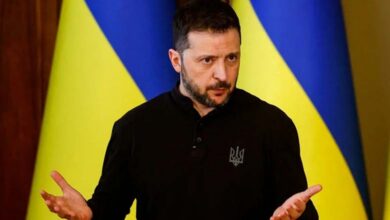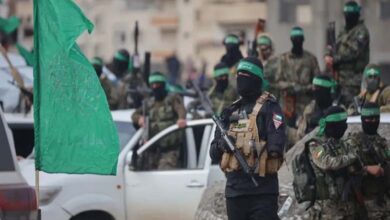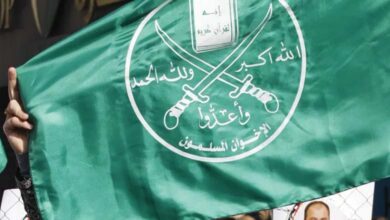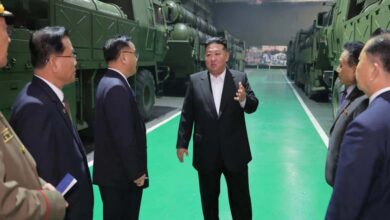Turkey and Qatar intensify mediation efforts, with Israel’s priority being a response to Hamas’ Attack
Doha seeks, with American support, an agreement that would lead to the release of Israeli women held captive by Hamas in exchange for Palestinian female prisoners in Israeli jails
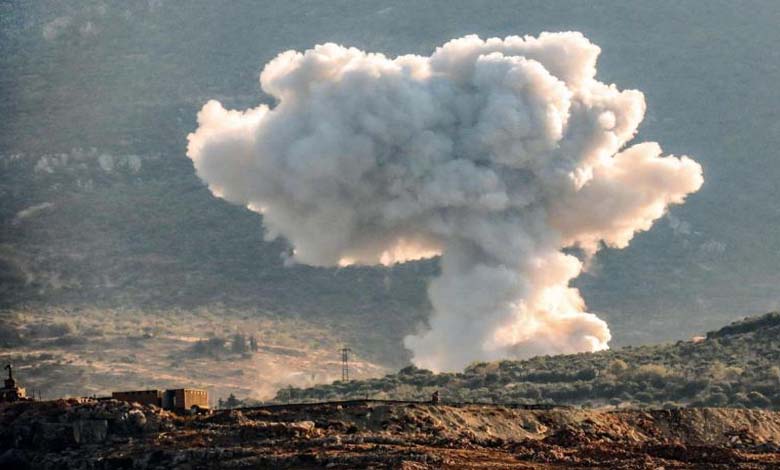
Arab and regional countries are attempting to intervene to halt the Palestinian-Israeli escalation, playing the role of mediator by engaging in diplomacy from multiple angles and working on a acceptable formula for the involved parties to achieve a ceasefire with the assistance of regional states. Media outlets have reported efforts by Turkey, Egypt, Qatar, Jordan, and Saudi Arabia in this regard.
On Monday, the Turkish newspaper “Hürriyet” reported that Turkish President Recep Tayyip Erdogan would intervene to halt the Palestinian-Israeli escalation, as Ankara does not want to lose its role as a mediator.
The newspaper wrote, “After the shuttle diplomacy conducted by (Turkish Foreign Minister) Hakan Fidan, it is expected that President Erdogan will intervene at the highest level. Turkey is making efforts to prevent the deepening and spread of the war.”
It noted that “Turkey is a country that can currently speak to both Israel and Palestine and can intervene when a ceasefire is required. Both the Palestinian and Israeli sides may demand this. Turkey does not want to lose its position as a mediator.”
On Saturday, Erdogan called for restraint and avoiding reckless steps in his first comments on the ongoing events between Hamas and Israel after the movement announced the launch of “Operation Storm Al-Aqsa.” He later stated that “permanent peace in the Middle East can only be achieved through a comprehensive solution to the Palestinian issue,” which he described as “at the core of all problems in the region,” emphasizing the importance of the commitment to the “two-state solution.” He also expressed Ankara’s determination to “intensify the diplomatic efforts we have started to restore calm.”
However, Israel’s current priority is to respond to Hamas‘ attack in the most severe manner, as indicated by Israeli officials. The Israeli Ambassador to Ankara, Irit Lillian, responded to a question about possible Turkish mediation by stating, “Now is not the time for mediation. It is time to respond to this attack. What is required is not calm and postponing the issue, but solving it and completely eliminating the terrorists.”
The Ambassador expressed hope that the recent escalation would not affect the normalization process between Israel and Turkey.
On the opposite side, Hamas representative Hazem Qassem stated that the movement refuses to cease fire with Israel as long as Israel continues to escalate and target civilians. He told the Russian news agency RIA Novosti that it is too early to discuss mediation because “the battlefield determines who controls the situation.”
The representative of the movement [Hamas] pointed out that discussions about the Israeli prisoners will begin after the end of the ‘Operation Al-Aqsa Storm.’ He clarified that this matter falls under the jurisdiction of the Qassam Brigades (the military wing of Hamas).
Hamas launched its largest attack on Israel in decades last Saturday, with its fighters infiltrating Israeli towns, killing hundreds and returning to the Gaza Strip with dozens of prisoners. Meanwhile, the Israeli army responded with airstrikes on Gaza. The latest numbers indicate the deaths of 700 Israelis and over 400 Palestinians, with 2,000 Palestinian and Israeli casualties.
Saudi Arabia and Qatar have held Israel responsible for the ongoing escalation and are engaged in extensive diplomatic efforts on the international stage to reduce the tension.
A source within Hamas revealed an advanced mediation led by Qatar for an urgent prisoner exchange deal with Israel.
The Xinhua news agency reported on Sunday evening, quoting an undisclosed source, that Doha is seeking, with US support, an agreement that would secure the release of Israeli women held by Hamas in exchange for Palestinian female prisoners in Israeli jails.
The source also stated that a Hamas leader informed Qatar that the movement has no objection to proceeding with the deal as long as it guarantees the release of all 36 Palestinian female prisoners held in Israeli prisons.
Qatar has not issued an official comment yet, but its foreign ministry has confirmed its call for all parties to cease the escalation and work towards calm in Palestine, as well as the complete cessation of armed confrontations on all fronts to prevent the region from sliding into wider violence.
Qatar’s foreign ministry clarified that communications conducted by Qatari officials with relevant parties continue as part of regional and international efforts to de-escalate the situation.
Saudi Arabia has engaged in multiple consultations with Arab and international parties, focusing on calling for intensified efforts to calm the situation and avoid further violence.
Meanwhile, Egyptian authorities have stepped up their contacts with both the Israeli and Palestinian sides, as well as regional and international parties, since Saturday and up to now.
Over the course of two days, Egypt has become involved in the crisis, with President Abdel Fattah al-Sisi holding intensive consultations with regional and international parties. The latest contact was a phone call with King Abdullah II of Jordan, continuing coordination and consultations between Egypt and Jordan aimed at calming the situation and emphasizing the need for a ceasefire, cessation of violence, and restraint.
Hebrew media outlets revealed new details about ‘Operation Al-Aqsa Storm’ on Monday. The Hebrew channel ‘Kan’ reported that between 800 to 1,000 members of Hamas’ ‘Elite’ unit participated in the infiltration into the Gaza envelope under the cover of rockets.
The channel clarified that Hamas members reached 20 settlements and 11 Israeli army camps, noting that estimates indicate Hamas had been planning the operation for about a year.
The broadcasting authority confirmed that the border fence with Gaza is still breached and outside full control, with militants infiltrating 80 breaches in the fence.
On the other hand, Channel 12 on Israeli television mentioned that there are suspicions of a tunnel leading to one of the ‘kibbutzim’ (collective settlements) in the Gaza envelope.
It was pointed out that the possibilities of this tunnel serving as an assisting factor for Palestinian elements to enter the settlements and then return are high, which contributed to the lengthy period of control over these areas.
It was confirmed that there are reports so far of hostages being held in Sderot, with clashes occurring in another area within the same settlement.


